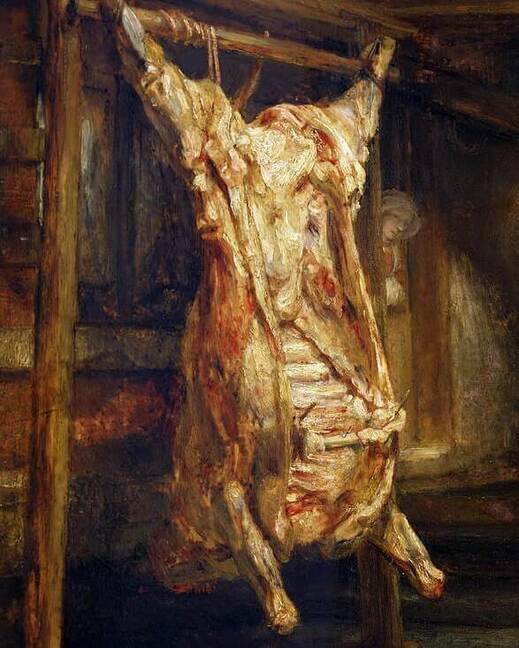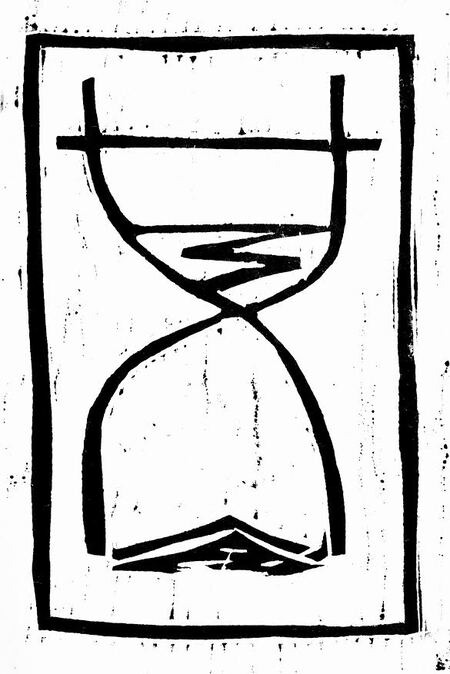|
Ox Carcass (after Rembrandt) Though you hang from a rail, your body suspended, Legs stretched apart, chest cavity splayed to our gaze, I can still sense your life force, your power upended. You toiled all day every day and never suspected, With all your muscle, this would be your final day. Though you hang from a rail, your body suspended Like a vision of Christ, you cannot be mended, Your carcass unclothed, exposed for us to appraise. I can still sense your life force your power upended Which makes me pray you could be resurrected And plough for us a different furrow in a new way. Though you hang from a rail, your body, suspended, You teach that fate’s sharp blades, whose wretched Work we cannot escape, we can only for a time delay. I can still sense your life force, your power upended To show us death hangs heavier than we pretended But we must forge our path and not let it hold sway; Though you hang from a rail your body suspended I can still sense your life force, your power upended. Colin Pink Colin Pink is a poet and art historian and often writes ekphrastic poems. His first collection Acrobats of Sound was published in 2016 by Poetry Salzburg and The Ventriloquist Dummy’s Lament, a collection of villanelles together with woodcuts specially created by artist Daniel Goodwin to go with each poem, has just been published in 2019 by Against the Grain. Editor's note: The artworks below are by Daniel Goodwin. In an interesting manifestation of ekphrasis, Colin's poem was inspired by the Rembrandt painting, and Daniel's painting was inspired by his poem. The woodcut of Daniel's painting was used in their collaborative book.
2 Comments
9/11/2019 09:50:05 pm
The perfections of Colin Pink's villanelle, "Ox Carcass" are both durable and memorable. I've returned to this poem several times since it was posted. The repetition (particularly in the turn,) is particularly suited to the subject of the poem, and as all truly important poems, there emerges a visceral transcendence simply unavailable elsewhere. The power of the poem seems to kick into
Reply
9/19/2019 09:24:26 am
Between Daniel Goodwin's (blooded) hourglass, his upended illustration and Rembrandt's slaughtered ox, as the last commentator points out, the ingenious selection of the poem's form. Its motion - who'd have thought it, without the poet's guiding hand - draws from the hanging beast of burden, inverted, slaughtered, and disturbing as intended. I take the point of a sacrifice which can be turned on ourselves.
Reply
Your comment will be posted after it is approved.
Leave a Reply. |
The Ekphrastic Review
COOKIES/PRIVACY
This site uses cookies to deliver your best navigation experience this time and next. Continuing here means you consent to cookies. Thank you. Join us on Facebook:
July 2024
|






